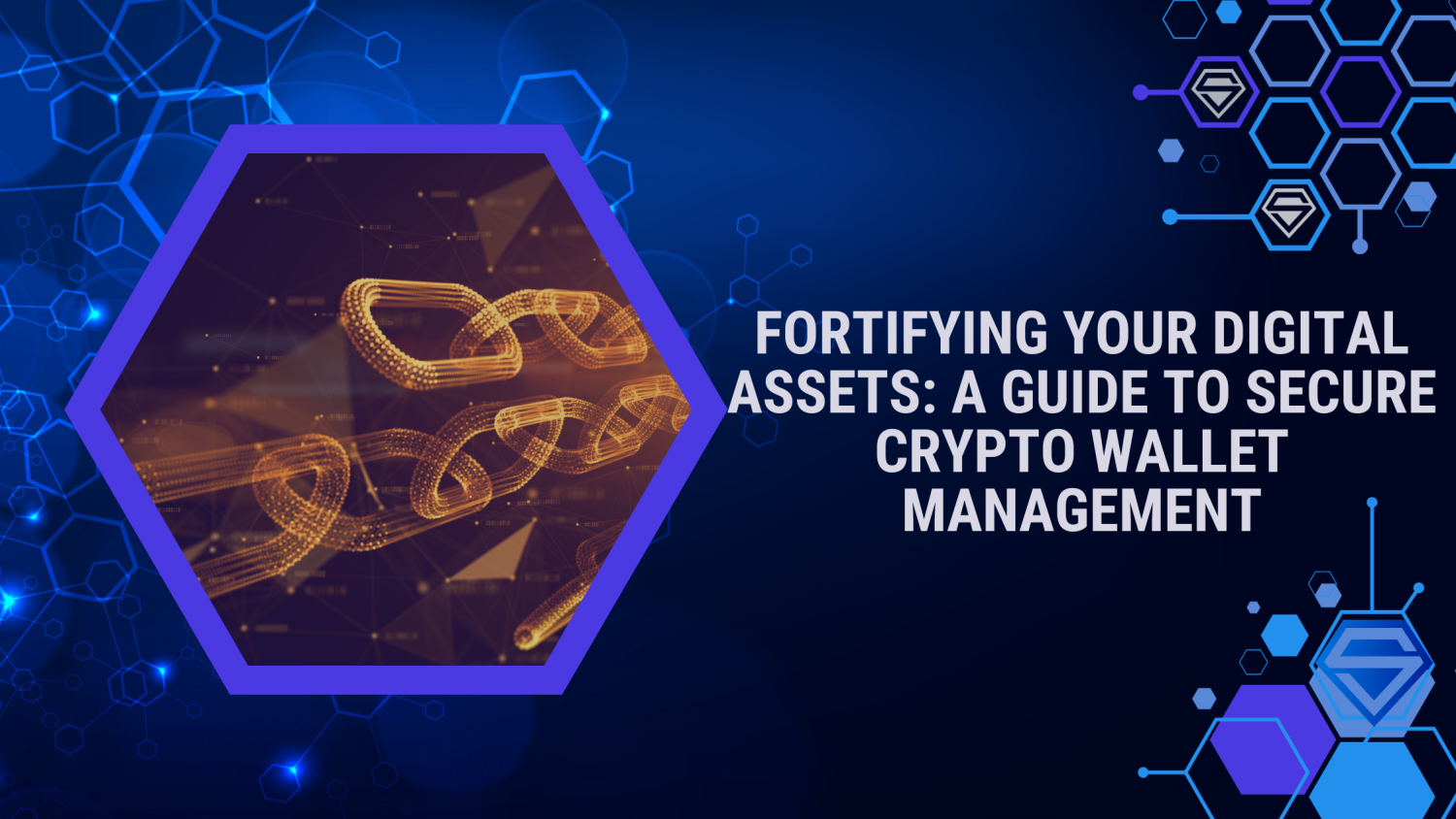
23. October, 2023
How to Safely Store and Manage Your Crypto with Wallets?
The phrase “Not your keys, not your crypto” underscores the importance of having full control over your cryptocurrency. In this in-depth guide, we’ll unravel the mysteries of securely storing and managing your crypto using wallets.
Whether you’re a crypto veteran or just setting foot in the realm of digital currencies, this blog will equip you with the knowledge and tactics necessary to safeguard your investments and navigate the complex crypto landscape with confidence.
Read on to discover the best practices for securing and controlling your crypto assets in this ever-evolving digital age.
What is a Crypto Wallet?
At its core, a crypto wallet is a digital tool designed to securely store, send, and receive cryptocurrencies. Think of it as your personal digital bank, but with complete control resting in your hands. Crypto wallets come in various forms, including software, hardware, paper, and even metal. Each type serves a distinct purpose and offers different levels of security, catering to a wide range of user preferences and needs.
The Types of Crypto Wallets
Software Wallets
These are applications or software programs that you can install on your computer or smartphone. They are convenient and easy to use, but they come with varying degrees of security. For smaller investments or regular transactions, these are often sufficient.
Hardware Wallets
These physical devices are designed to store your cryptocurrencies offline, providing a high level of security. They are immune to online threats and are a great choice for long-term storage of substantial holdings.
Paper Wallets
A paper wallet is a physical document that contains a public address for receiving crypto and a private key for spending or transferring it. They’re a secure, offline storage option but require careful handling.
Metal Wallets
These are essentially metal plates or cards that store your private keys in a more durable and tamper-resistant form, offering protection against physical damage and elements like fire or water.
How to Keep Your Crypto Wallet Secure
When it comes to safeguarding your crypto assets, you can’t be too cautious. Your choice of wallet lays the foundation for security, but your actions can further fortify it. Here are some key tips to ensure your digital assets remain impenetrable:
Backup, Backup, Backup
These are the three golden words in the world of crypto. Always create multiple backups of your wallet’s private keys. These keys are your digital keys to the vault, and losing them could mean losing access to your investments.
Store these backups in separate, secure locations. Think of it as creating layers of protection. Consider using a combination of physical and digital backups, such as USB drives, secure cloud storage, or even a trusted safe deposit box.
Periodically check the integrity of your backups to ensure they are still accessible and haven’t been corrupted over time.
Use Strong Passwords
Your wallet’s password is the first line of defense. Create a robust, unique password that is a complex mix of letters (both upper and lower case), numbers, and special characters. Avoid using easily guessable information like your name, birthdate, or common words. Instead, opt for a passphrase that only you can decipher.
Never share your password with anyone. It’s your digital signature, and keeping it confidential is vital to your wallet’s security.
Enable Two-Factor Authentication (2FA)
Whenever your chosen wallet offers the option, enable 2FA. This adds an extra layer of security by requiring you to provide a second form of verification beyond your password.
Common 2FA methods include receiving a text message with a code, using a mobile app like Google Authenticator, or employing hardware-based keys like YubiKey. Even if someone somehow gains access to your password, 2FA serves as a formidable barrier, preventing unauthorized entry to your wallet.
Stay Informed
The crypto world is dynamic, with evolving threats and security measures. Stay informed about the latest security updates and best practices for your chosen wallet. Subscribe to official wallet newsletters or forums where experts and the community discuss security issues and solutions.
Regularly update your wallet software to benefit from the latest security patches and enhancements.
Remember, security is not a one-time effort; it’s an ongoing commitment. The diligence you put into securing your crypto wallet can mean the difference between peace of mind and potential financial loss.
So, How to Select the Right Crypto Wallet for You?
Choosing the appropriate wallet depends on your specific needs, the amount of crypto you hold, and your preferred level of security. For daily transactions and small holdings, a software wallet might suffice.
However, for substantial investments, a hardware wallet is highly recommended. Paper and metal wallets offer ultimate security but require responsible storage to avoid loss.
Final Thoughts
The right choice of wallet and adherence to essential security practices, such as strong password management and keeping private keys offline, significantly reduce the risks of loss or theft. However, this journey is ongoing in a dynamic environment, demanding continuous adaptation and vigilance. To thrive in the crypto space, stay informed about the latest security practices, engage with the community, and commit to safeguarding your digital wealth.


